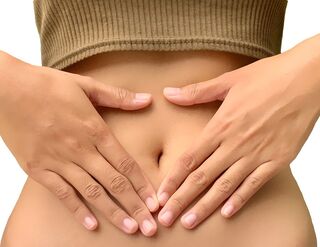Intelligence
Science-Based Behavioral Treatments for Irritable Bowel Syndrome
Recent research on treatments for IBS is reviewed.
Posted February 24, 2021 Reviewed by Ekua Hagan

A recent study by Chey and colleagues, published in Gastroenterology, reviews the latest behavioral and diet therapies for irritable bowel syndrome, a chronic gastrointestinal condition affecting over 10% of people.
Let me first explain what irritable bowel syndrome is and how it is diagnosed.
What is irritable bowel syndrome?
The diagnosis of irritable bowel syndrome (IBS) relies neither on X-ray nor blood tests. In fact, the diagnosis of IBS is based mainly on symptoms: Episodes of abdominal pain (e.g., cramping) and bloating/distention associated with changes in bowel habits (i.e. frequency, stool appearance) or disordered bowel habits (diarrhea, constipation, or a mixture).
It was once assumed IBS symptoms improve with defecation; however, that is no longer part of the definition of IBS because for some patients, passing a bowel movement does not improve IBS symptoms; sometimes it makes them worse.
Irritable bowel syndrome is more common in women and in those younger than 50 years of age. Food intolerances (e.g., food allergies, hypersensitivities), chronic stress and anxiety, certain digestive and gastrointestinal conditions (e.g., gastroenteritis, diverticulitis), and some surgeries increase the risk for developing IBS or for worsening of the IBS symptoms.
Common treatments for IBS, grouped by symptoms, are summarized below.
- Diarrhea: Dietary changes (low gluten), opioid agonists (loperamide), bile sequestrants (cholestyramine), probiotics, antibiotics (rifaximin), 5-HT3 antagonists (alosetron), and mixed opioid agonists/antagonists (eluxadoline).
- Constipation: Psyllium, polyethylene glycol or PEG (used in the laxative Miralax), chloride channel activators (lubiprostone), and guanylate cyclase C agonists (linaclotide).
- Abdominal pain: Smooth muscle antispasmodics (dicyclomine), peppermint oil, tricyclic antidepressants (desipramine), SSRIs (sertraline), and some drugs (noted above) used for constipation and diarrhea (lubiprostone, linaclotide, and alosetron).
The review summarized in the rest of this article, however, focuses less on drugs and more on natural treatments for IBS. Specifically, it discusses behavioral interventions and diets for IBS.
Behavioral treatments for IBS
Behavioral techniques may be particularly helpful for IBS patients whose symptoms are strongly related to stress, fear, anxiety, and maladaptive thoughts.
Behavioral treatments for IBS include:
- GI CBT: 4-8 CBT sessions (3-4 months); includes relaxation, cognitive reframing, and exposure (e.g., interoceptive, emotional).
- Gut-directed hypnotherapy: 7-12 sessions (3-4 months); consists of relaxation exercises and subconscious suggestions to enhance gut-brain communication (regarding pain symptoms).
- Mindfulness-based stress reduction: Duration of two months (including a retreat); delivered in a group format; focuses on relaxation exercises and stress reduction.
- Psychodynamic interpersonal psychotherapy: Duration of 4-5 months; delivered in an individual format; addresses interpersonal difficulties, somatization, and trauma.
In general, most behavioral techniques for IBS alter the gut-brain axis in one of two ways:
Some interventions modify the descending pathways from the brain to the gut. This is important because many IBS patients engage in pain catastrophizing (e.g., magnifying the seriousness of the pain, feeling helpless when in pain), and suffer from psychological disorders, particularly anxiety and depression, that might exacerbate the symptoms. These patients may benefit from cognitive behavioral therapy (CBT). CBT uses techniques like decatastrophizing, cognitive reframing, and challenging schemas (e.g., perfectionism) to better regulate the descending brain-gut pathways.
Other interventions, in contrast, modify the ascending pathways from the gut to the brain, using techniques like relaxation, biofeedback, interoceptive exposure (i.e. intentionally activating gut sensations), progressive muscle relaxation, guided imagery, breathing exercises, and other practices that activate the parasympathetic nervous system. To illustrate, deep breathing exercises (also called diaphragmatic breathing) practiced before eating might reduce hypervigilance and attentional bias toward gut sensations.

Diet for IBS
The most evidence-based diet for IBS is a low FODMAP diet, which improves symptoms in 50-75% of patients. The diet has three phases: Full FODMAP restriction, reintroducing FODMAPs one at a time, and FODMAP personalization (based on results from the second step) for long-term use.
FODMAP stands for Fermentable Oligosaccharides, Disaccharides, Monosaccharides And Polyols. Simply put, FODMAPs are short-chain carbohydrates that are not absorbed well in the intestines; therefore, they are more likely to ferment rapidly and produce gas. In patients with IBS, a high intake of these foods may cause visceral hypersensitivity and inflammation of the colon.
FODMAPs are found in many kinds of foods—those containing fructose (especially when in higher quantities than glucose), lactose, fructans, polyols (e.g., sorbitol, mannitol), and galacto-oligosaccharides.
Some sources of FODMAPs are dairy products (e.g., milk), grains (e.g., wheat, rye), legumes (e.g., lentils, beans), apples, apricots, plums, pears, peaches, mangoes, watermelons, certain beverages (containing high-fructose corn syrup), honey, artichokes, asparagus, onions, garlic, broccoli, cauliflower, mushrooms, sugar-free gums, and certain medications.
Chey et al. note that at least three in four people who respond well to the strict FODMAP diet can maintain the same response over time with milder FODMAP dietary restriction. Why?
Perhaps because IBS symptoms fluctuate, or because most people with IBS do not have the same level of sensitivity to all foods high in FODMAP. Alternatively, “changes in gut microbiology [e.g., reduced density of bacteria] and physiology resulting from chronic restriction of FODMAPs or the lack of episodic high FODMAP intake might have altered the response to mechanoreceptor activation” in these patients.
Takeaway
Irritable bowel syndrome is a chronic gastrointestinal condition associated with episodes of abdominal pain and discomfort, which are related to changes in bowel habits. Various medications and supplements could help ease the discomfort associated with constipation, diarrhea, and abdominal pain:
Behavioral treatments like relaxation exercises, interoceptive exposure, and cognitive behavioral therapy might improve the IBS symptoms by altering the brain-gut axis.
As for diets, a low-FODMAP diet has been shown to be beneficial. Implementing the low-FODMAP diet can be challenging—due to costs, food preparation restrictions, limited options when eating out with friends or traveling, risk of nutritional deficiency, etc. Therefore, it is important to speak to a nutritionist before going on the low-FODMAP diet. In addition, since IBS sometimes co-occurs with eating disorders and other mental health conditions, seeing a therapist may also be helpful.




